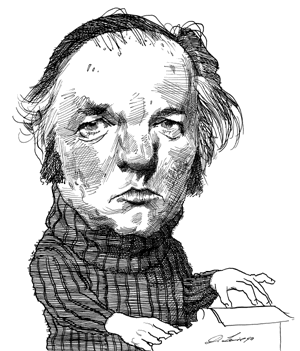The Perfect and the Helpless
The perfect not only threatens us ceaselessly with our ruin, it also ruins everything that is hanging on these walls under the label masterpiece. I proceed from the assumption that there is no such thing as perfect or the whole, and each time I have made a fragment of one of the so-called perfect works of art hanging here on the walls by searching for a massive mistake in and about that work of art, for the crucial point of failure by the artist who made that work of art, searching for it until I found it, I have got one step further. In every one of these paintings, these so-called masterpieces, I have found and uncovered a massive mistake, the failure of its creator. For over thirty years this, as you might think, infamous calculation has come out right. Not one of these world-famous masterpieces, no matter by whom, is in fact whole or perfect. That reassures me. It makes me basically happy. Only when, time and again, we have discovered that there is no such thing as the whole or the perfect are we able to live on. We cannot endure the whole or the perfect. We have to travel to Rome to discover that Saint Peter's is a tasteless concoction, that Bernini's altar is an architectural nonsense. We have to see the Pope face to face and personally discover that all in all he is just as helpless and grotesque a person as anyone else in order to bear it. We have to listen to Bach and hear how he fails, listen to Beethoven and hear how he fails, even listen to Mozart and hear how he fails. And we have to deal in the same way with the so-called great philosophers, even if they are our favorite spiritual artists, he said. After all, we do not love Pascal because he is so perfect but because he is fundamentally so helpless, just as we love Montaigne for his helplessness in lifelong searching and failing to find, and Voltaire for his helplessness. We only love philosophy and the humanities generally because they are absolutely helpless. We truly love only those books which are not a whole, which are chaotic, which are helpless.
from 'Old Masters'
